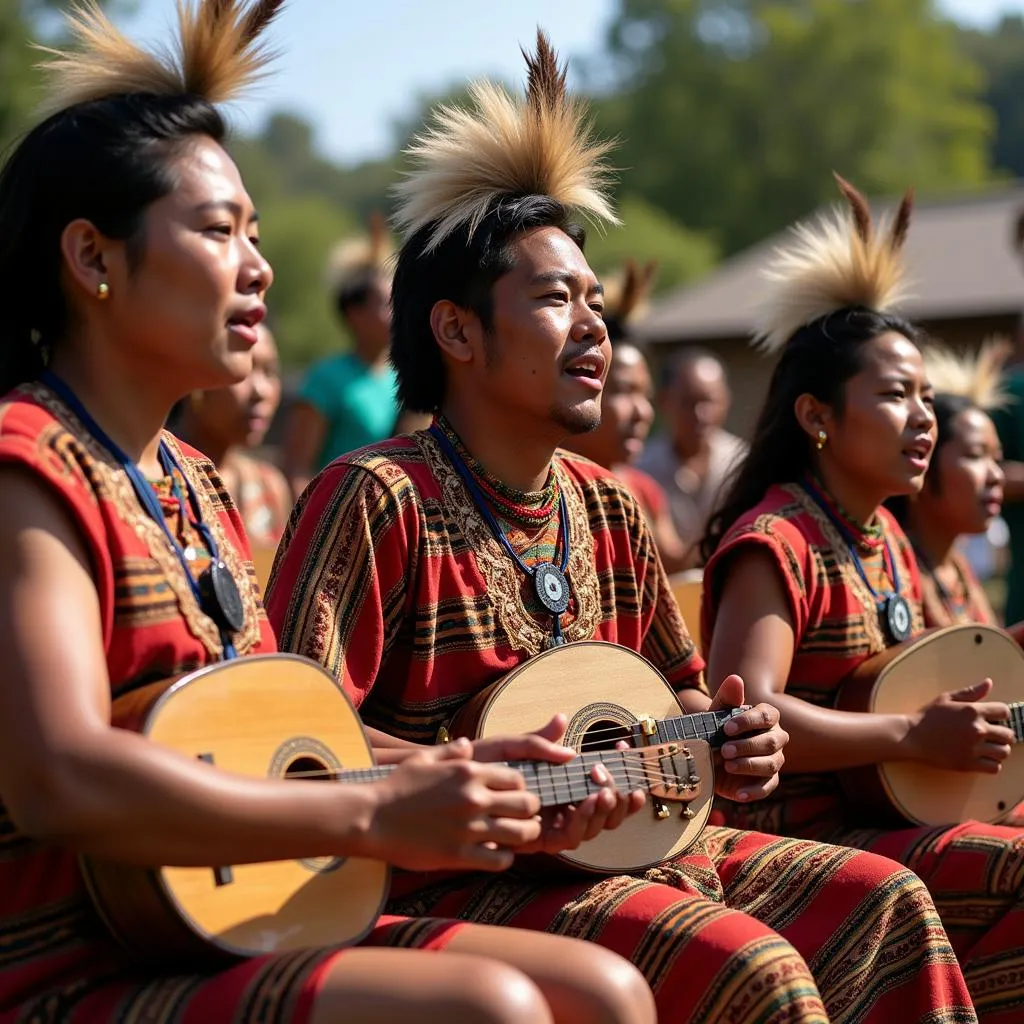Music is more than just a source of entertainment; it’s a powerful force that shapes and reflects society. From the protest songs that fueled revolutions to the soothing melodies that unite us in times of grief, music has an undeniable impact on our collective consciousness. Throughout history, music has played a pivotal role in shaping cultural identity, influencing social movements, and fostering global understanding.
The Social Impact of Music: A Closer Look
Music has the remarkable ability to transcend language barriers and cultural differences, creating connections where words often fail. It has the power to evoke a wide range of emotions, from joy and excitement to sadness and contemplation, shaping our individual experiences and influencing our interactions with the world around us.
 People from Different Cultures Enjoying Music Together
People from Different Cultures Enjoying Music Together
Music and Social Change: A Historical Perspective
Throughout history, music has been a catalyst for social change, giving voice to the oppressed and inspiring action. From the spirituals sung by enslaved Africans in America to the anti-apartheid anthems of South Africa, music has provided solace and strength to those fighting for justice and equality.
One of the most compelling examples of music’s influence on social change is the American civil rights movement of the 1950s and 1960s. Music became a powerful tool for communication, mobilization, and expression during this tumultuous period. Songs like “We Shall Overcome” and “Blowin’ in the Wind” became anthems of the movement, uniting people from all walks of life in the struggle for racial equality.
The Role of Music in Shaping Cultural Identity
Music plays a vital role in shaping cultural identity, preserving traditions, and expressing shared values. Traditional music, passed down through generations, acts as a repository of cultural heritage, connecting people to their roots and providing a sense of belonging.
 Indigenous Musicians Performing Traditional Music
Indigenous Musicians Performing Traditional Music
Music and Globalization: A Bridge Between Cultures
In our increasingly interconnected world, music has become a powerful tool for promoting cross-cultural understanding and fostering global citizenship. The internet and social media have broken down geographical barriers, allowing us to experience music from all corners of the globe and connect with artists and fans from diverse backgrounds.
The Future of Music and its Impact on Society
As technology continues to evolve, so too will the ways in which music shapes our world. From artificial intelligence creating new musical experiences to virtual reality concerts connecting people across continents, the possibilities are endless. However, amidst these advancements, it’s crucial to remember the enduring power of music to unite, inspire, and effect positive change in our world.
 Young People Attending a Global Music Festival
Young People Attending a Global Music Festival
Conclusion: Harnessing the Power of Music for a Better World
Music is an undeniable force that shapes our individual lives and our collective experience. By understanding its profound impact on society, we can harness its power to promote peace, understanding, and positive change in the world. Let’s continue to celebrate the unifying power of music and its ability to create a more harmonious and compassionate world.